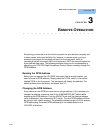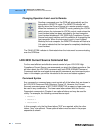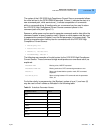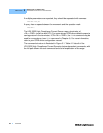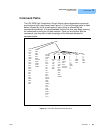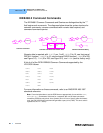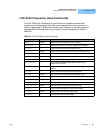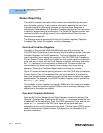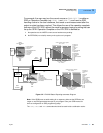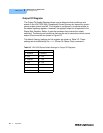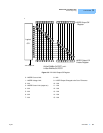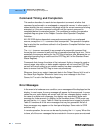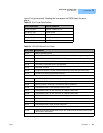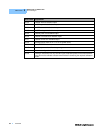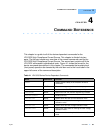
REMOTE OPERATION
Status Reporting
28 LDX-3232
CHAPTER 3
Status Reporting
This section contains information that is relevant for understanding instrument
error and statu reporting. It also contains information regarding the use of the
instrument status for generating interrupts for interrupt driven programs or
subroutines. Understanding the Operation Complete definition for the instrument
is useful for programming synchronization. The Output Off Register section also
contains iformation on setting some of the conditions that will force the laser
current source output off.
The following sections describe the Event and Condition registers, Operation
Complete Flag, Output Off registers, and Error Messages.
Event and Condition Registers
In addition to the required GPIB-IEEE488 status reporting structures, the
LDX-3232 High Compliance Current Source remote interface provides Event and
Condition Registers for LASER operations. The Event Registers are used to
report events that occur during the operation of the LDX-3232 High Compliance
Current Source. Events differ from conditions in that events signal an occurrence
once, and are not reset until the Event Register is queried, the status cleared by
the *CLS command, or the instrument is powered off. Conditions reflect the
current state of the device and therefore may change many times during
operation. Querying a Condition Register does not change its contents.
Figure 3.3 shows the status reporting scheme of the LDX-3232 High Compliance
Current Source. Each of the registers that may be accessed by a command or
query has the appropriate command or query written above or below the register
representation. For example, the LASER Condition Register may be queried via
the LASer:COND? query.
The condition or event registers are logically ANDed with their respective enable
registers. These bits are then logically ORed to form a summary message in the
status byte for that particular register.
Operation Complete Definition
Note that Bit 0 of the Standard Event Status Register contains the status of the
Operation Complete flag. Enabling this bit via the *ESE command allows the user
to update bit 5 of the status byte. Then, if the SRE mask has bit 5 set, and the user
issues an *OPC command, the SRQ (bus) signal will be generated upon
completion of the currently processed commands. This bus signal (SRQ) may be
used to initiate service request routines, that depend on the completion of all
previous commands.




